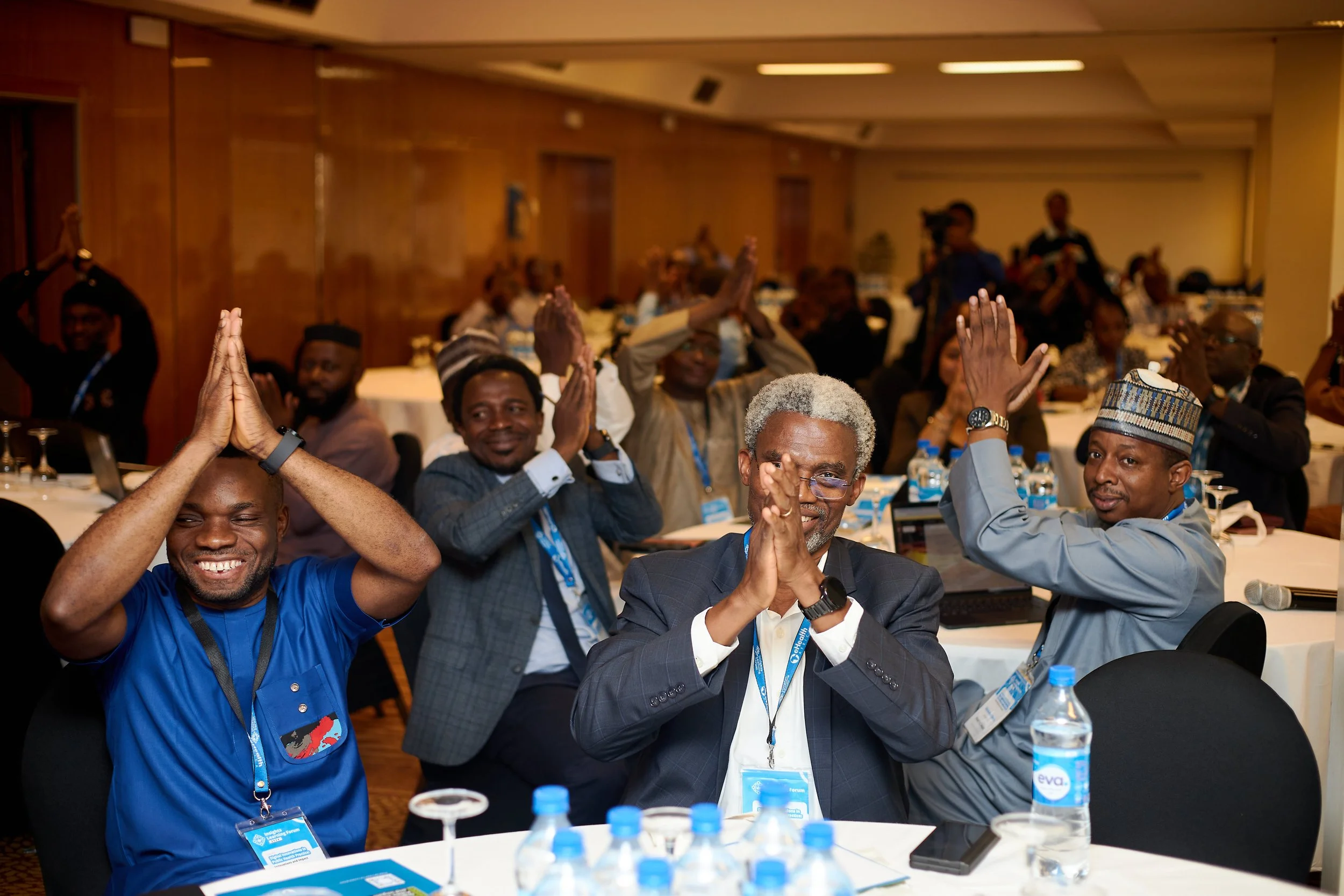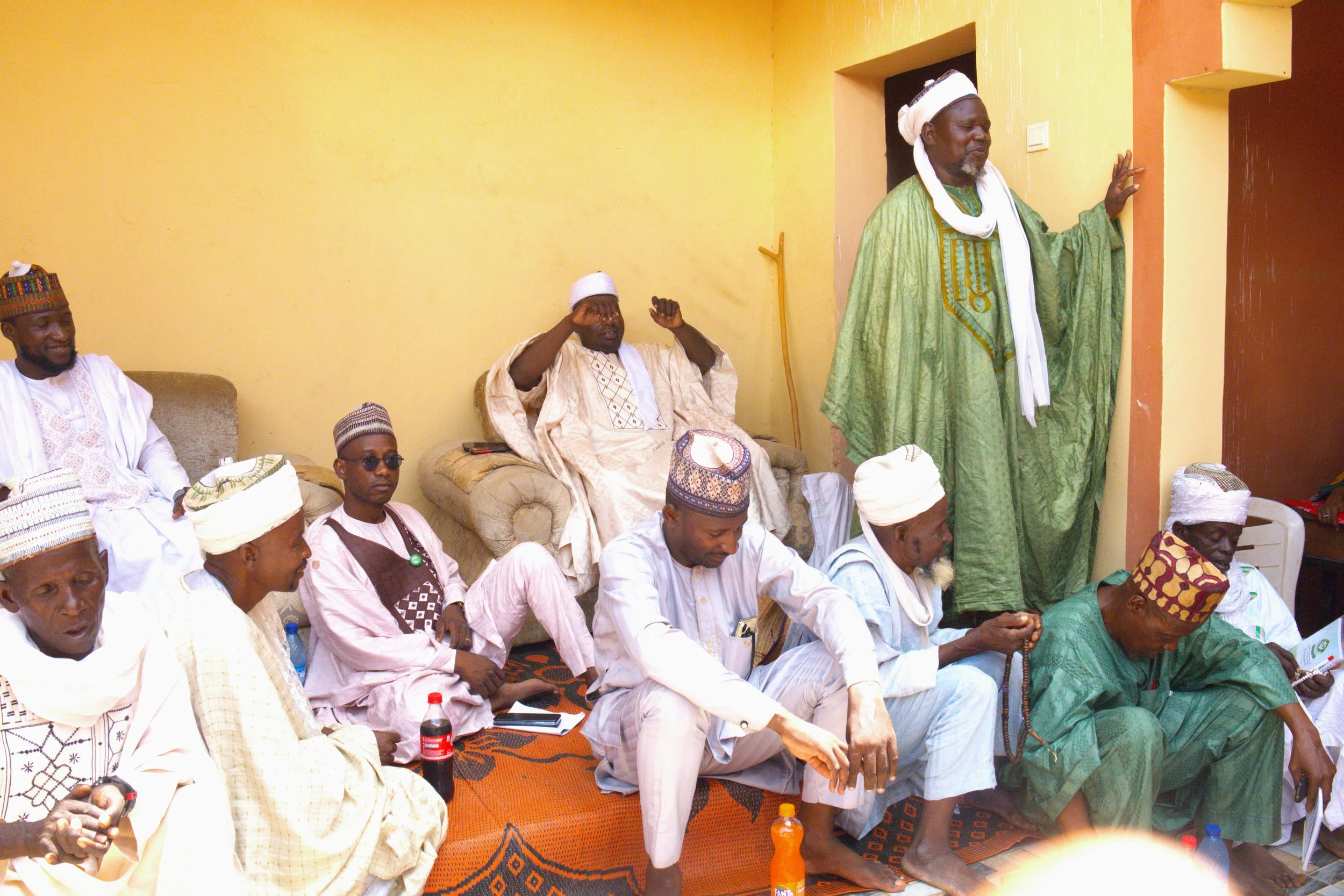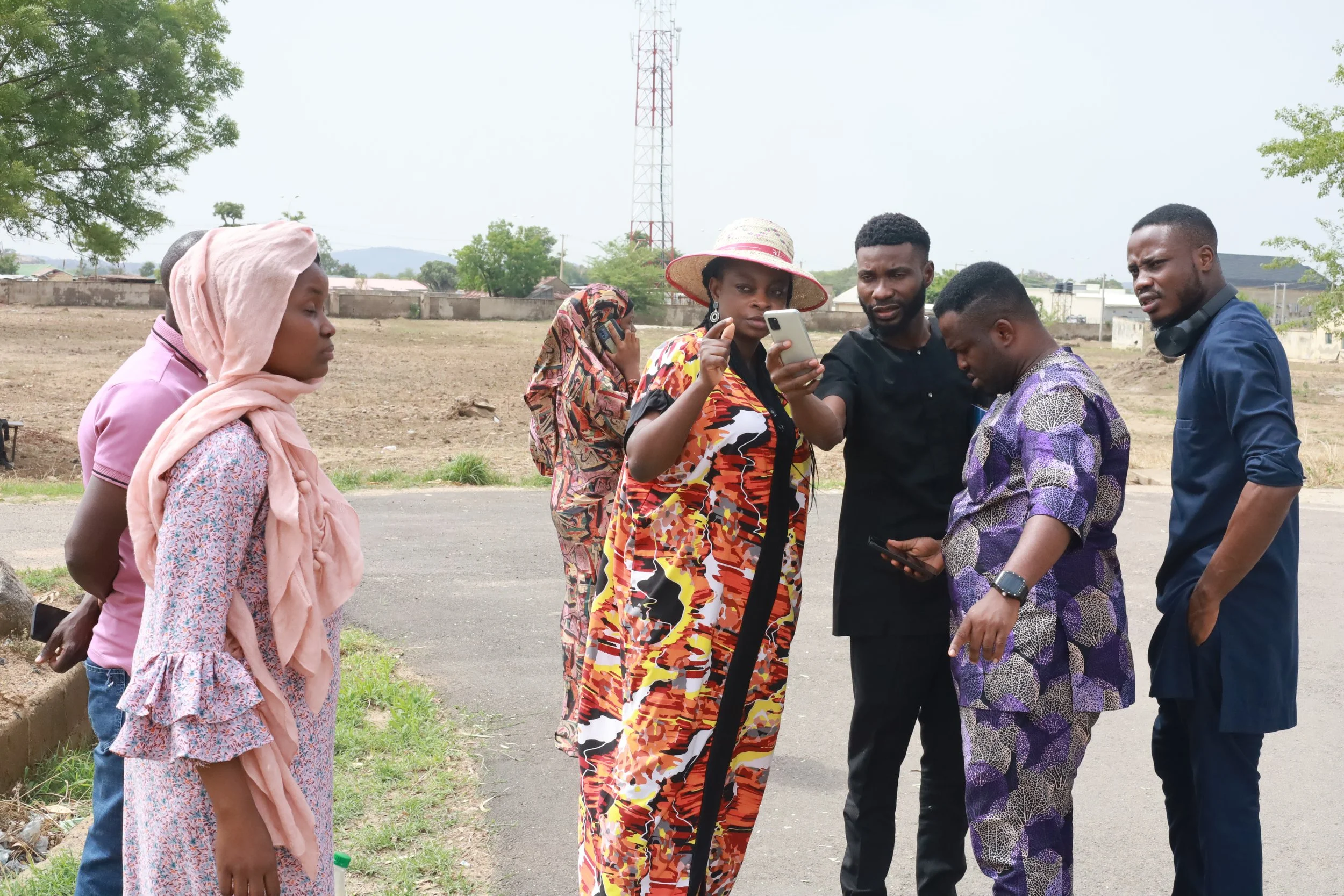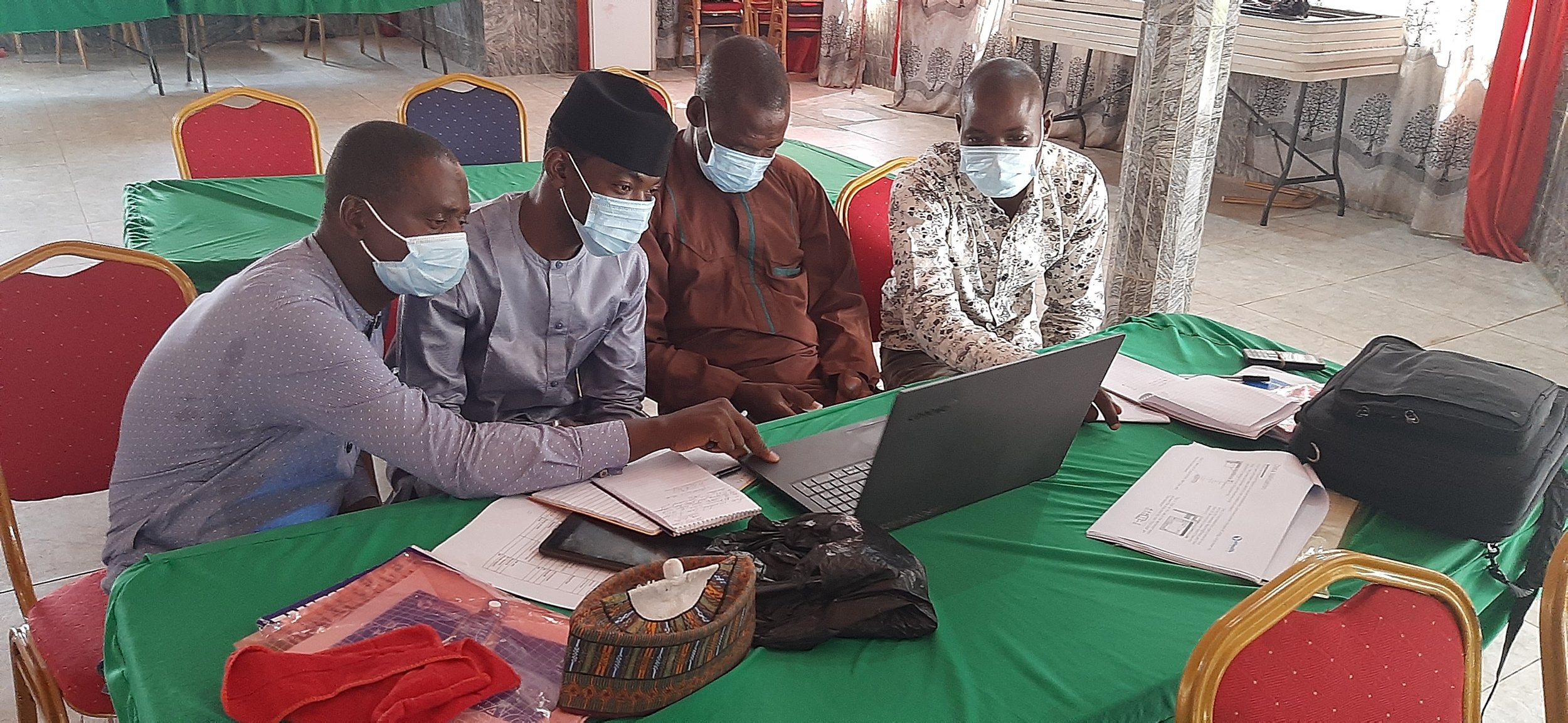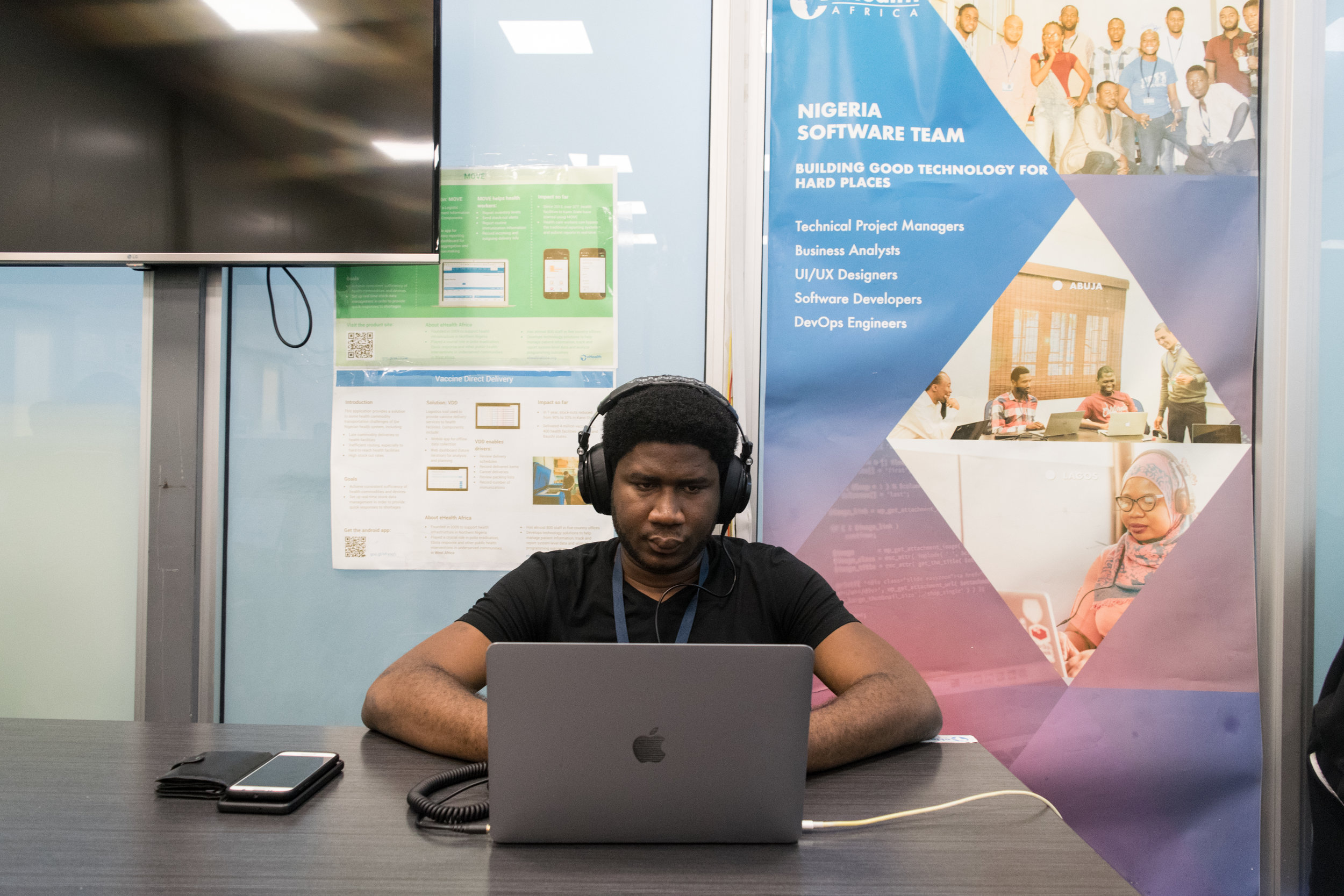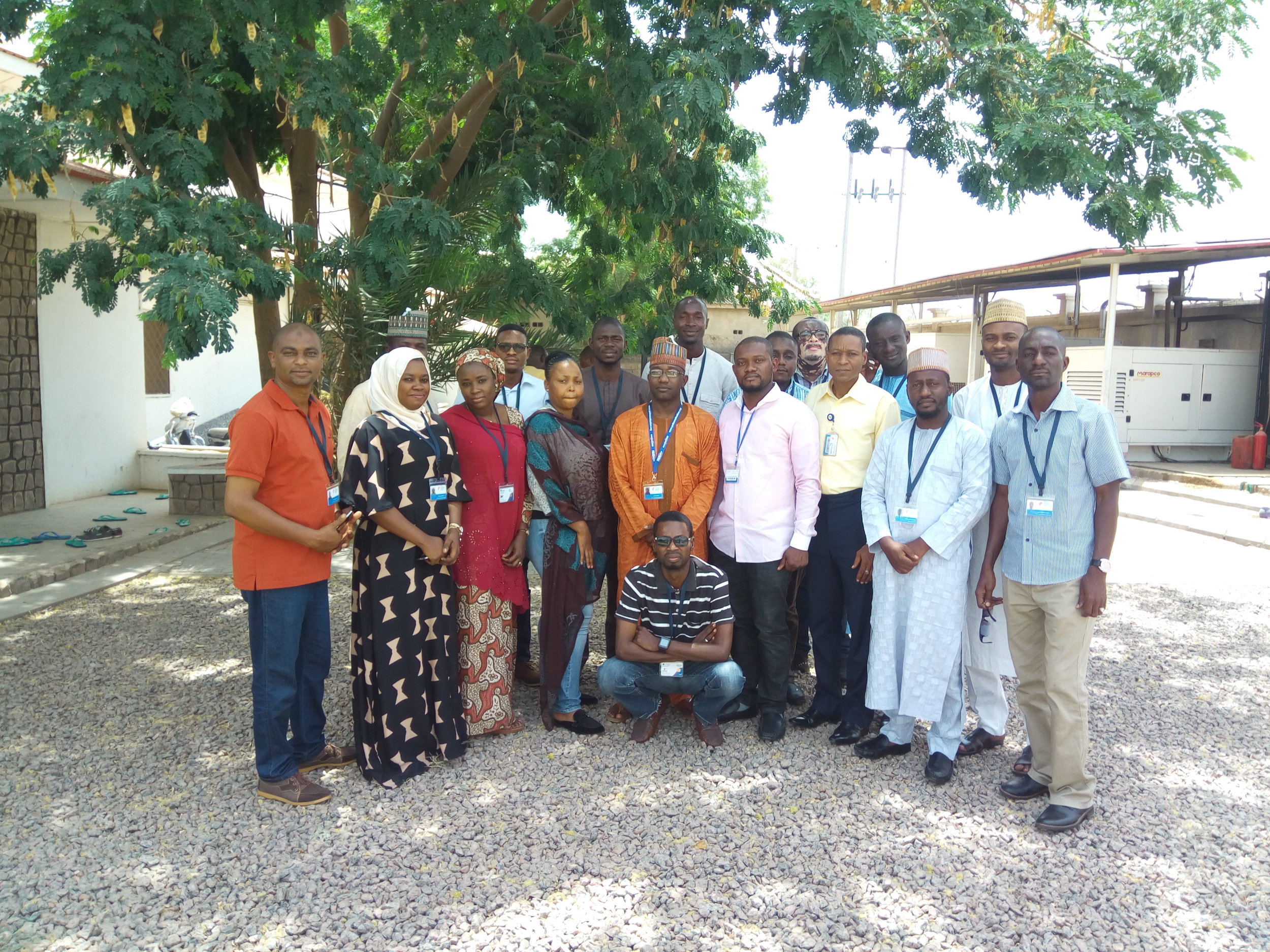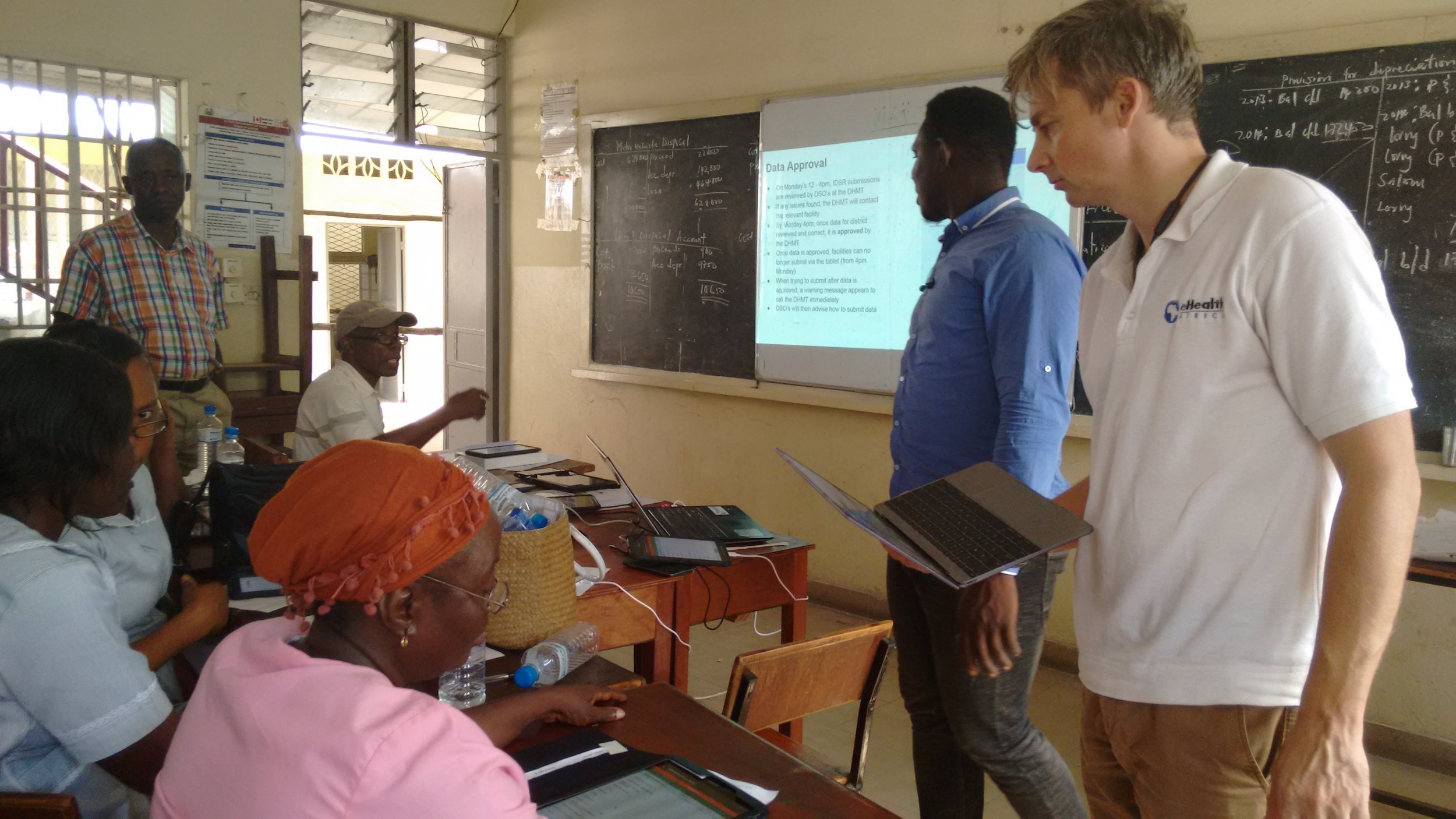The Bong lab is situated at the Phebe Hospital Compound, Bong County. In October 2014, it was one of the regional laboratories selected by Liberia’s Ministry of Health (MOH), the United States Navy (US Navy) and other partners for testing suspected Ebola samples as part of the fight against the 2014 West Africa EVD outbreak. The Bong lab and other identified priority labs faced a few similar capacity challenges, including the lack of skilled staff, lack of adequate equipment and poor internet connectivity. eHA provided lab support by developing technology for capturing of lab data, provided internet connectivity to enable the labs submit the data electronically and also provided human capacity support, including recruitment and training of lab desk officers.
Roberto Koimenee is one of the four lab desk officers that eHA worked with via the laboratory support program. He is deployed at Bong Lab to enter Ebola virus disease (EVD) data and report daily samples test results to the Liberia’s Ministry of Health and eHealth Africa.
From Roberto
‘’I got involved with eHealth Africa-Liberia through an application and CV submission during the Ebola outbreak in September, 2014 in Liberia. I was called by eHA for an interview which was followed by training as a Lab Desk Officer. I was assigned to Bong EVD Lab. I was motivated to work in the lab because I wanted to help in the fight against Ebola in Liberia. Since eHealth is a technology driven company, with my knowledge in data management, I decided to help in this fight against Ebola by entering data from samples tested and submit report for decision making at the National level.
I have more than eight years of experience as an Administrative staff and four years of experience as a data officer at eHealth Africa-Liberia, where I have won some performance awards. I love managing database and solving data issues. I am a person who thrives to work out things when it’s difficult to do and work independently to solve complicated problems”, he explains.
I participated in a three-day training conducted by eHA and this training impacted my life and work by increasing my knowledge in the following topics: Sample handling storage, and processing; Confidentiality/Document control, Data entry and analysis. Today, I know how to control and secure patient information and report accurate and reliable results to requisite and identified individuals responsible to receive said information or results.
The part of the training I like the most was the off-line tracker although it has not been fully utilized by Bong Lab. The off-line tracker is so unique in that it tracks all data or information in all the four (4) regional labs in the country (Liberia). Each lab can see and access information including reports/results of specimen tested. This system can be used without internet. However, that training especially the off-line tracker needs to be fully utilized for the safety, reliable and secure of lab information/data.
Although I worked with other institutions before eHealth Africa came to Liberia, but life was not too good for me and my family. My salary was too small to cover all my expenses including undertaking house construction project. But after I was employed by eHA, my salary was encouraging that enable me and my family to live better life.’’
Roberto’s wife, Christiana Hne Koimenee, believes her husband made a good decision working for eHA in the fight against Ebola in Liberia, even though she expressed fear over her husband doing one of the riskiest jobs, and comes to the conclusion it was worth it.

